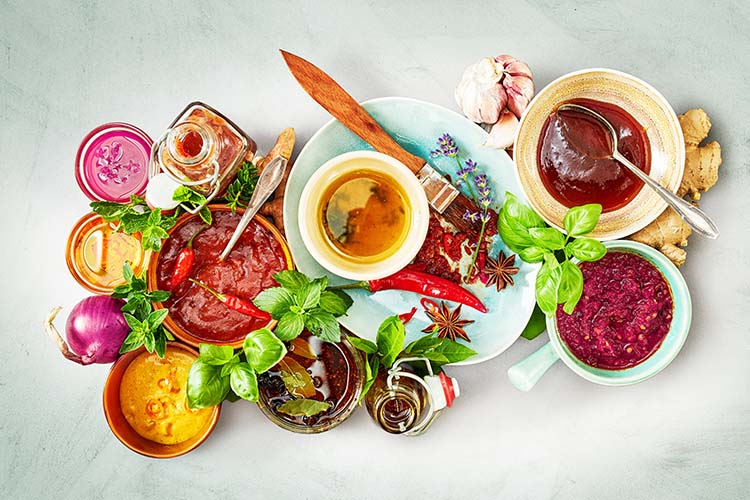Sustainability is driving consumers’ interests in choosing the best food to better this world. One eco-friendly culinary ingredient – Citri-Fi® citrus fiber – not only is produced from byproduct of the juicing process (upcycled), but also, it provides stability, emulsification, and natural texture in a variety of finished dressing and sauce food products.
Sustainability is popping up front and center in the food industry among other sectors. Because of this, consumers continue to grow savvier when learning about farm to fork. And this encapsulates everything from how raw materials are procured to the finished goods on the shelf. But in the end, how does one identify an eco-friendly culinary ingredient? This is a frequently asked question.
Eco-friendly and the Food Industry
First, let’s define eco-friendly. The Webster dictionary indicates it is an adjective describing things as “not environmentally harmful”. However, this is a blanket descriptor which applies to numerous things in this world ranging from reducing plastic waste to using renewable energy. So, what does that have to do with the food industry?
The food industry has a long and complex supply chain which starts with growing the raw material and ends with packaging the food for distribution. The steps in-between are many which also affect the environmental impact. Currently, the industry is slowly tracking the influential factors and creating regulations, programs and certifications to help improve the food system. One key area of the supply chain is food ingredients.
Clean and Natural Food Ingredients
There are a plethora of terms that consumers patrol in the food ingredients industry besides eco-friendly. Some buzzwords include green, clean label, natural, organic and sustainable. Many of these feed into the eco-friendly culinary ingredient definition. Additionally, these trends impress upon different food categories such as baked goods, beverages and dairy products.
For instance, clean label is key in dressing and sauces. The industry offers several clean label food ingredient options. However, they all come with their own challenges. For example, food starches and gums are typical work horses in the sauce arena. Yet, if these ingredients are not dialed in correctly, they tend to create gummy or stringy textures. And in some cases, certain ingredients do not hold up to processing conditions like low pH and high heat. As a result, dressing and sauces tend to separate over time and/or produce off-textures. Also, though starches are widely accepted, some food gums fall suspect on food labeling.
Eco-friendly Culinary Ingredient: Citrus Fiber
Another sustainable food ingredient ideal for dressing and sauces is citrus fiber. This new kid on the block checks all the eco-friendly boxes. However, not all citrus fibers are created the same. Citri-Fi citrus fiber is produced from byproduct of the citrus juicing industry using a process free from chemical modifications. This upcycled ingredient still contains intact native pectin which is vital to providing high water holding and emulsification properties.
Other similar ingredients are byproduct of pectin extraction. Though considered upcycled, these parallel ingredients are typically subjected to chemicals due to their process. Because of this, functionalities are limited. On the other hand, Citri-Fi’s process involves only heat and water.
Citri-Fi creates natural textures at low usage levels (<1%). Also, this eco-friendly culinary ingredient can thicken, stabilize and emulsify a variety of sauces. Some types include dairy-free, vegan, organic, and plant-based. In addition, because Citri-Fi’s composition resembles tomato composition, this natural ingredient can be used to extend tomato solids in sauces and pastes.
Connecting the Dots: Eco-friendly and Citrus Fiber
When a product developer, food scientist or culinary chef uses Citri-Fi, they can rest at ease that there is a sustainable story behind its existence. Citri-Fi’s green story starts from procurement and ends with improving a finished dressing or sauce. Labeling options include citrus fiber, dried citrus pulp or citrus flour which all resonate well in the natural and clean label markets.
Citrus fiber also has no e-number which is key in regions such as Europe. Certified organic Citri-Fi is now available – the Citri-Fi 400 series. This eco-friendly culinary ingredient is non-GMO, gluten-free and allergen-free.
For more information, please contact us.


